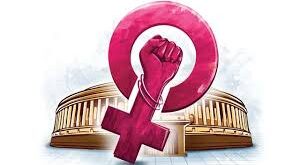- The Union Government is set to launch a nationwide ‘Good Governance Week’ from 20th December to 26th December, with the motto to redress and dispose of public grievances and improvise service delivery down to the village level
- Various events will be convened during the week under the campaign titled “Prashasan Gaon Ki Aur” aimed to be citizen-focused.
- 25th December is celebrated as ‘Good Governance Day’ to mark the birth anniversary of former Prime Minister Atal Bihari Vajpayee.
Important points:
- It is observed to celebrate the strides made by India in promoting citizen-centric governance and improving service delivery in line with Azadi ka Amrut Mahotsav celebrations to commemorate 75 years of progressive India.
- The series of programmes planned during the week will aim to highlight various good governance initiatives taken by the Centre.
- It will also include the inauguration of the Exhibition on Good Governance Practices.
- Ease of Living and Next Phase of Reforms for Reducing Compliance Burden
- Experience Sharing Workshop by DARPG on Best Practices.
- Mission Karmayogi – The Path Ahead.
- Good Governance Week Portal will also be launched during the occasion and all district collectors of states and union territories will be given access to the online portal to upload and share the progress and achievements.
- Prashasan Gaon Ki Aur” campaign will be launched with an aim to take good governance to the rural areas.
Governance
- It is the process of decision-making and the process by which decisions are implemented (or not implemented).
- Governance can be used in several contexts such as corporate governance, international governance, national governance and local governance.
- Eight Principles of Good Governance (as identified by the United Nations
- People should have a voice in decision-making, either directly or through legitimate intermediate institutions that represent their interests.
- Legal frameworks should be fair and enforced impartially, particularly the laws on human rights.
- Transparency is built on the free flow of information. Processes, institutions and information are directly accessible to those concerned with them, and enough information is provided to understand and monitor them.
- Institutions and processes try to serve all stakeholders within a reasonable timeframe.
- Good governance requires mediation of the different interests in society to reach a broad consensus in society on what is in the best interest of the whole community and how this can be achieved.
- All groups, particularly the most vulnerable, have opportunities to improve or maintain their well being.
- Processes and institutions produce results that meet needs while making the best use of resources.
- Decision-makers in government, the private sector and civil society organisations are accountable to the public, as well as to institutional stakeholders.
SOURCE: THE HINDU,THE ECONOMIC TIMES,MINT
 Chinmaya IAS Academy – Current Affairs Chinmaya IAS Academy – Current Affairs
Chinmaya IAS Academy – Current Affairs Chinmaya IAS Academy – Current Affairs



